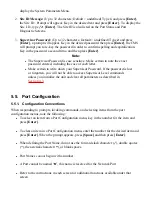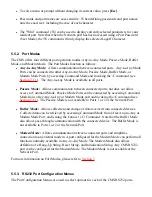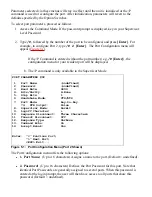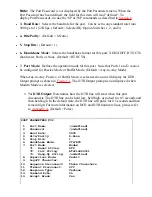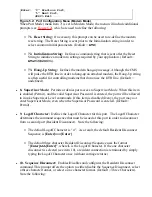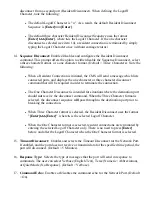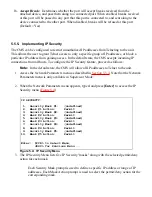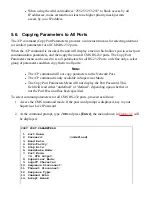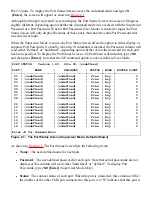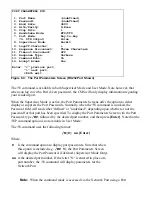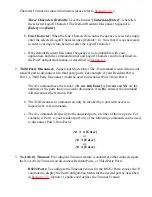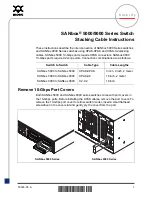
Masks are listed in order of ascending priority; Mask 1 has the lowest priority, and
Mask 5 has the highest priority.
b.
Masks have a cumulative effect; high priority masks supersede the effect of lower
priority masks.
c.
Each IP Address consists of a series of four eight bit numbers. The number 255 is
used as a wild card.
d.
Example 1: Deny access to all hosts except 192.1.1.5:
Security Mask #1: 255.255.255.255
●
Mask #1 Action: Deny
●
Security Mask #2: 192.1.1.5
●
Mask #2 Action: Permit
●
Since 255 is a wild card, Mask #1 blocks all IP Addresses. Mask #2 then specifically grants
access to 192.1.1.5 only.
Example 2: Allow access only by addresses that begin with 192:
Security Mask #1: 255.255.255.255
●
Mask #1 Action: Deny
●
Security Mask #2: 192.255.255.255
●
Mask #2 Action: Permit
●
Since 255 is a wild card, Mask #1 blocks all IP addresses Mask #2 then grants access to all
addresses that begin with 192.
Example 3: Allow access only by addresses that begin with 192, deny access to 192.1.1.5.
Security Mask #1: 255.255.255.255
●
Mask #1 Action: Deny
●
Security Mask #2: 192.255.255.255
●
Mask #2 Action: Permit
●
Security Mask #3: 192.1.1.5
●
Mask #3 Action: Deny
●
Since 255 is a wild card, Mask #1 blocks all IP addresses. Mask #2 then grants access to all
addresses that begin with 192. Finally, Mask #3 specifically blocks access by 192.1.1.5.
Note:
Mask #5 has priority over the four other masks. If Mask #5 is set to deny
access by "255.255.255.255" (all wild cards), all IP addresses will be
blocked, and you will not be able to access the CMS Command Mode via
network. Access will only be allowed via the Console Port or Modem Port.
●






